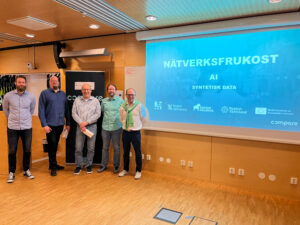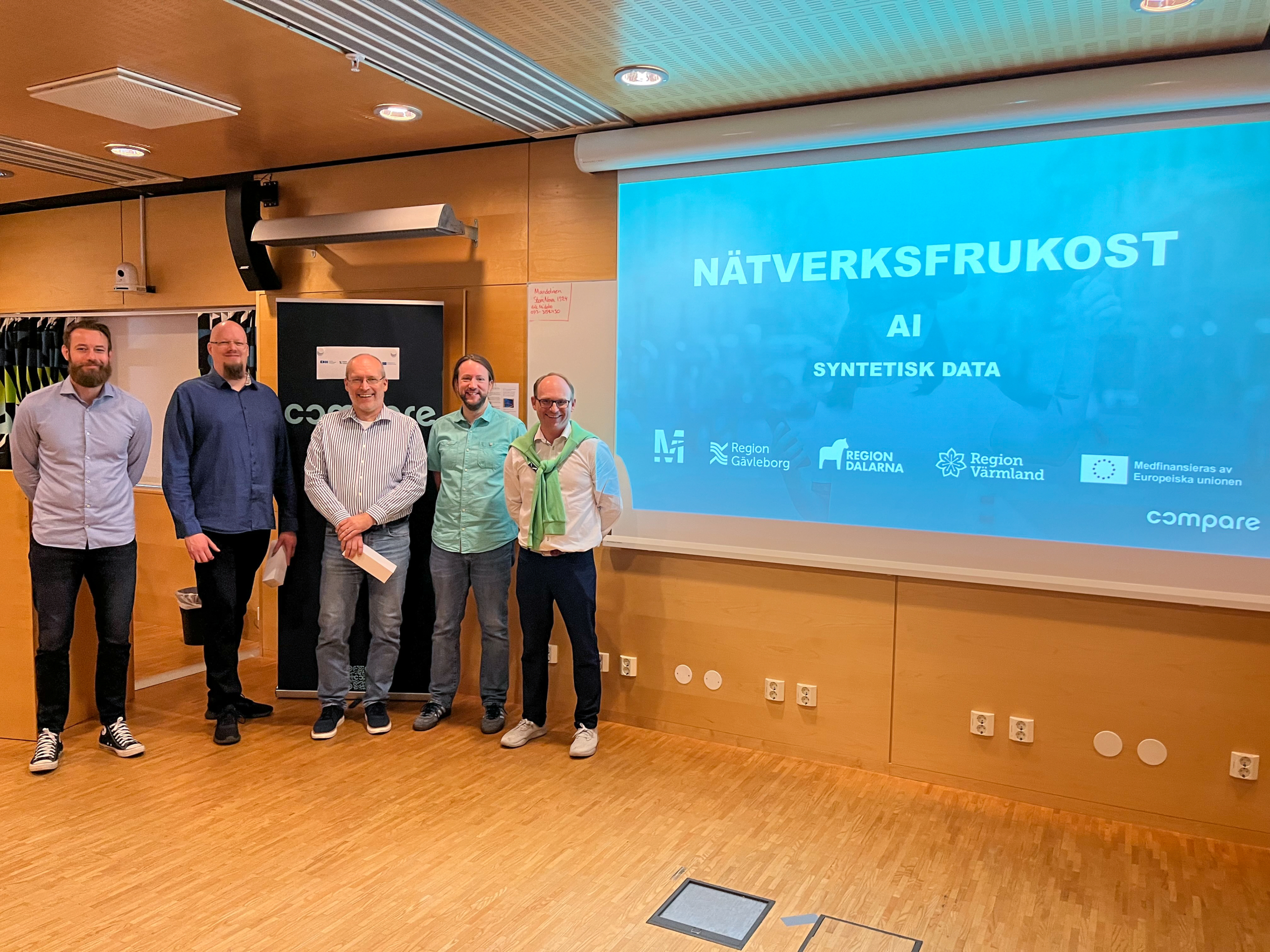A summary of the Network Breakfast lessons learnt on synthetic data:
- Mimicking real data
Sebastian Herold, Assistant Professor of Computer Science at Karlstad University, explained that synthetic data is artificial data that is not taken from reality but mimics real data. It can be used as training data for AI when real-world data cannot or may not be applied. For example, when training AI in facial recognition, AI-generated faces can be used instead of faces of real people. - Risk analysis is important
Meiko Jensen, Senior Lecturer in Computer Science at Karlstad University, talked about legal aspects of machine learning using synthetic and organic data. Although synthetic data is anonymous, and thus does not fall within the scope of the GDPR, risk analysis is important to ensure that the privacy of individuals is not violated either directly or indirectly through the use of data. It should also be recognised that AI can draw incorrect conclusions and create biases if the data has a narrow representation, for example. - Opportunity in citizen services
Emil Joelsson, Development Strategist at Karlstad Municipality, described how synthetic data could be used as a resource within the municipality to create better service, support decision-makers and simplify administration. There is a lot of relevant data that cannot be used for ethical reasons. Synthetic data produced by simulating citizens’ reality could be an important key in the future to improve health, safety, infrastructure and the environment, among other things. - Synthetic data as a service
Jonas Forsman, Director Consulting Advanced Analytics Solutions at CGI, talked about the Mirage innovation project, which centres on building a synthetic data as a service solution. Through analysis of original data from reality and dialogue with the user, the service will deliver an instruction for how the user can generate equivalent synthetic data. Through a so-called “scrambler”, the aim is also to reduce the risk that the original data used in the process can be traced.
The network breakfast’s presenter Marcus Olsson Ramberg, who is the new Innovation Manager at Compare, took the opportunity to talk about the EDIH project MIGHTY, which wants to contribute to digital and sustainable transition for small and medium-sized companies in manufacturing industry and the public sector. Read more about it HERE.

Marcus Olsson Ramberg (Compare), Meiko Jensen (KaU), Jonas Forsman (CGI), Sebastian Herold (KaU) and Emil Joelsson (Karlstad Municipality)

